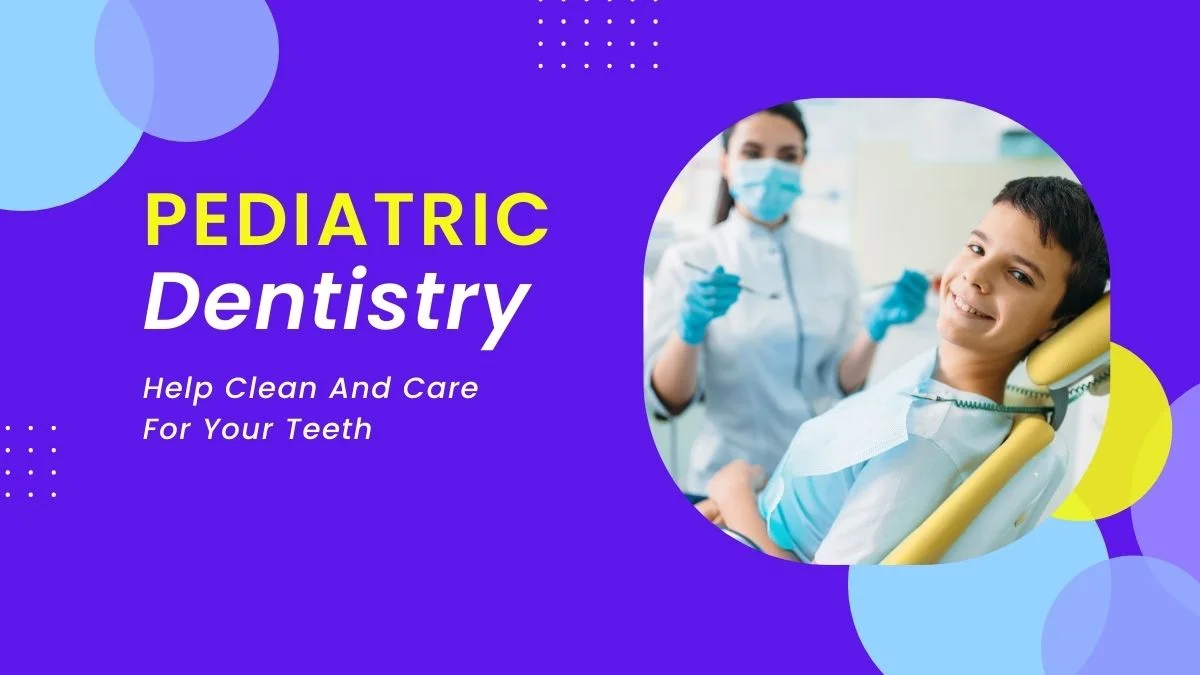HEALTH AND FITNESS
The Role of a Pediatric Dentist in Supporting Children’s Oral Health

Children’s oral health plays a crucial role in their overall well-being, influencing everything from speech development to self-confidence. Establishing good dental habits early can prevent common issues like cavities, gum disease, and misalignment. However, caring for a child’s teeth involves more than just brushing and flossing—it requires specialized care from a pediatric dentist.
A pediatric dentist focuses on the unique dental needs of children, from infancy through adolescence. Their expertise extends beyond routine cleanings, addressing issues such as tooth development, cavity prevention, and early orthodontic concerns. This guide explores the role of a pediatric dentist, why early dental visits are essential, and how parents can support their child’s oral health journey.
Table of Contents
1. What Makes a Pediatric Dentist Different?
While general dentists provide care for patients of all ages, a pediatric dentist undergoes additional training to specialize in children’s oral health. Their focus is on preventive care, education, and treatment tailored to young patients.
Key Differences Between Pediatric and General Dentists:
- Specialized Training: Pediatric dentists receive extra years of education to handle the unique needs of children.
- Child-Friendly Approach: They create a welcoming and comfortable environment to ease dental anxiety.
- Growth and Development Expertise: They monitor oral development and provide early intervention when necessary.
- Behavioral Management Techniques: Strategies like positive reinforcement help children feel at ease during visits.
Choosing a pediatric dentist ensures that children receive expert care in an environment designed to support their comfort and confidence.
2. The Importance of Early Dental Visits
Many parents wonder when to schedule their child’s first dental visit. According to dental experts, children should see a dentist by their first birthday or when their first tooth appears.
Why Early Dental Visits Matter:
- Prevention of Early Cavities: Regular checkups help detect and prevent decay in baby teeth.
- Establishing a Dental Routine: Early visits create positive experiences, reducing fear of the dentist.
- Monitoring Tooth Development: Pediatric dentists track how teeth emerge and align over time.
- Parental Guidance: Parents receive advice on teething, thumb-sucking, and proper brushing techniques.
Starting dental care early sets the foundation for a lifetime of healthy habits and reduces the risk of long-term dental issues.
3. Common Dental Issues in Children and How to Prevent Them
Children’s teeth are more vulnerable to decay and other issues due to diet, hygiene habits, and development. Identifying and addressing these concerns early can prevent complications later on.

Common Pediatric Dental Issues:
Some common pediatric dental problems are discussed below:
- Tooth Decay (Cavities): Frequent snacking, sugary drinks, and inadequate brushing contribute to cavities.
- Thumb-Sucking and Pacifier Use: Prolonged habits can affect tooth alignment and jaw development.
- Teething Discomfort: Irritability and gum sensitivity are common as teeth emerge.
- Early Tooth Loss: Premature loss of baby teeth can impact permanent tooth alignment.
Prevention Tips:
- Encourage Proper Brushing and Flossing: Teach children to brush twice daily and floss regularly.
- Limit Sugary Foods and Drinks: Reduce exposure to sweets that contribute to cavities.
- Regular Dental Checkups: Routine visits help detect and prevent problems before they worsen.
- Promote Healthy Oral Habits: Help children transition away from thumb-sucking and pacifiers at an appropriate age.
Preventive care from a pediatric dentist plays a vital role in maintaining a child’s oral health and avoiding unnecessary dental treatments.
4. The Role of Fluoride and Sealants in Cavity Prevention
Fluoride and dental sealants are two of the most effective tools in preventing cavities in children. These treatments strengthen teeth and protect them from decay.
Benefits of Fluoride Treatment:
- Strengthens Tooth Enamel: Helps resist acid attacks from bacteria and food.
- Reduces Cavity Risk: Lowers the chances of developing tooth decay.
- Supports Developing Teeth: Fluoride helps form strong permanent teeth.
How Sealants Work:
- Creates a Protective Barrier: Thin coatings applied to molars prevent food particles from getting stuck.
- Reduces Decay in Hard-to-Reach Areas: Protects deep grooves and fissures where brushing is less effective.
- Quick and Painless Application: The process is simple and requires no drilling or discomfort.
Fluoride treatments and sealants, along with regular dental care, provide an extra layer of protection for growing smiles.
5. The Connection Between Oral Health and Overall Health
A child’s oral health is closely linked to their overall well-being. Poor dental hygiene can contribute to other health problems, making regular dental visits essential.
How Oral Health Affects General Health:
- Gum Disease and Inflammation: Untreated gum infections can lead to pain and systemic health concerns.
- Speech and Eating Development: Healthy teeth are crucial for proper speech and chewing function.
- Self-Confidence and Social Development: A bright, healthy smile boosts self-esteem.
- Connection to Other Medical Conditions: Research links poor oral health to diabetes, heart issues, and respiratory infections.
Encouraging good oral hygiene from a young age benefits both dental health and overall well-being.
6. How Parents Can Support Their Child’s Oral Health at Home
In addition to visiting a pediatric dentist, parents play a crucial role in ensuring their children develop strong oral hygiene habits.
Tips for Parents:
- Make Brushing Fun: Use colorful toothbrushes and flavored toothpaste to encourage brushing.
- Lead by Example: Children are more likely to adopt good habits when they see their parents practicing them.
- Monitor Brushing and Flossing: Young children may need supervision until they develop proper techniques.
- Schedule Routine Checkups: Regular dental visits help maintain oral health and detect issues early.
- Encourage a Balanced Diet: Providing healthy snacks like fruits and vegetables supports strong teeth.
Consistent care at home combined with professional guidance from a pediatric dentist helps children develop lifelong healthy habits.
7. Choosing the Right Pediatric Dentist
Selecting a pediatric dentist ensures that children receive specialized care in a welcoming and child-friendly environment.
What to Look for in a Pediatric Dentist:
- Experience with Children: A dentist who specializes in pediatric care understands children’s unique needs.
- Gentle and Friendly Approach: A welcoming demeanor helps ease dental anxiety.
- Office Environment: A child-friendly space with engaging activities can make visits more enjoyable.
- Preventive Care Focus: Emphasis on cavity prevention, fluoride treatments, and early orthodontic assessments.
For families seeking quality pediatric dental care, clinics like Beacon Hill Dental Centre offer expert services tailored to children’s oral health needs.
Conclusion
A pediatric dentist plays a crucial role in ensuring children develop strong, healthy teeth and positive dental habits. Early visits help prevent common dental issues, while specialized care ensures a comfortable and stress-free experience.
With regular checkups, preventive treatments, and guidance from professionals, children can maintain excellent oral health as they grow. For families looking for dedicated pediatric dental care, Beacon Hill Dental Centre provides expert services to support children’s smiles from infancy to adolescence.
-

 GENERAL2 months ago
GENERAL2 months agoUncovering the World of кинокрадко: The Dark Side of Film Piracy
-

 GENERAL1 month ago
GENERAL1 month agoUnveiling the Art of преводсч: How Translators Bridge Language Barriers
-

 YOGA1 year ago
YOGA1 year ago4 Person Yoga Poses for Beginners
-

 GENERAL3 weeks ago
GENERAL3 weeks agoChristofle – For Those Who Dream of Family Heirloom Silver























